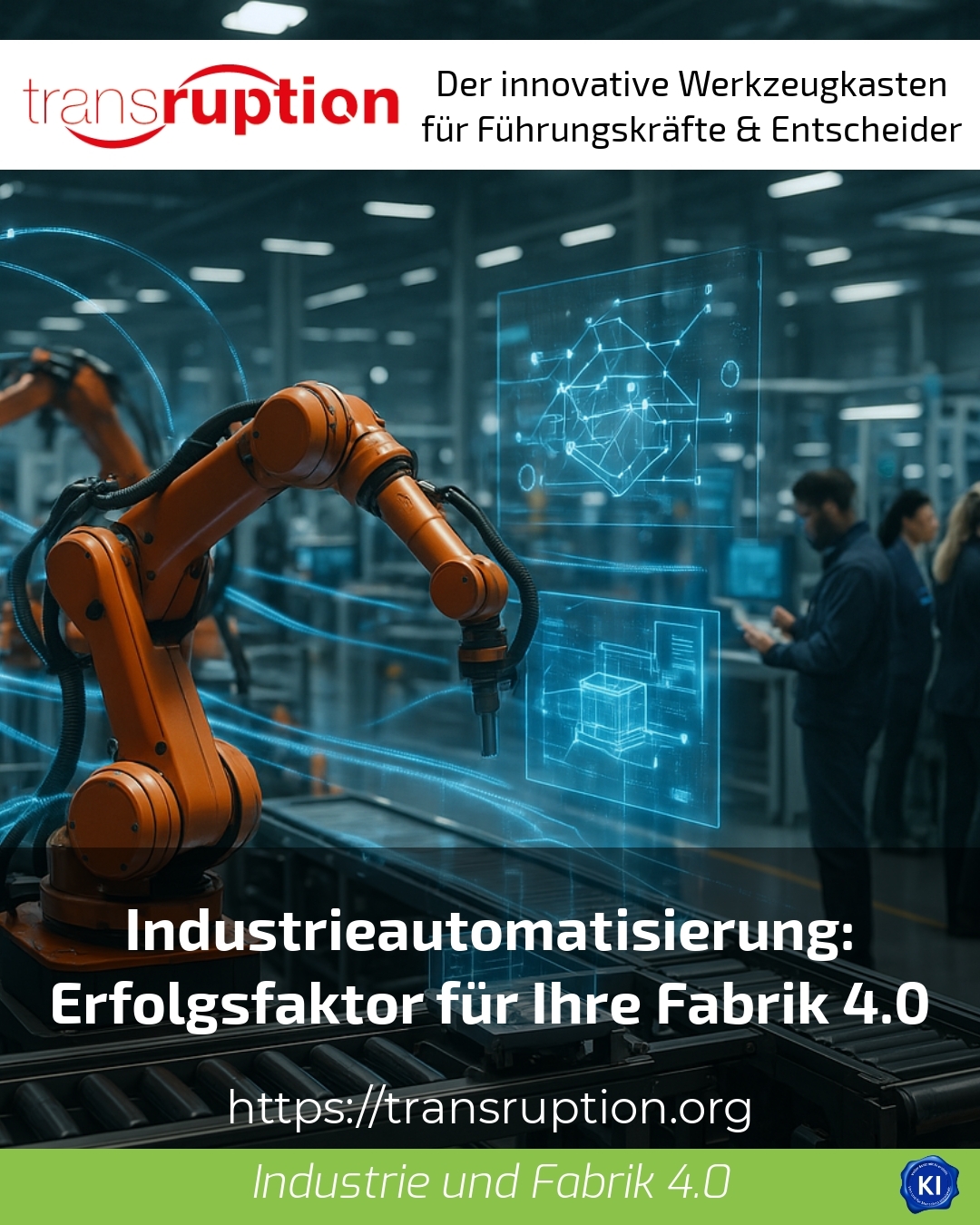Industrial automation as the centrepiece of modern factories
Industrial automation plays a central role in the realisation of Factory 4.0. The combination of state-of-the-art technologies with intelligent processes helps companies to make their production more flexible, more efficient and of higher quality. This involves not only the use of robots or machines, but also the integration of networked systems that independently control and optimise processes.
How industrial automation improves production
A decisive advantage of industrial automation is the increase in productivity. Better synchronisation of production steps means that processes can be designed much faster and more smoothly. At the same time, automation enables precise monitoring and early detection of faults, which minimises machine downtime and ensures product quality. Automated processes also reduce repetitive, stressful activities for employees, thereby improving working conditions.
Another important factor is flexibility. Thanks to industrial automation, production can react more quickly to changing market conditions. Production lines adapt dynamically to new product variants or quantities without causing long downtimes. This allows customer requirements to be taken into account in real time and increases customer satisfaction.
Examples from the industry
BEST PRACTICE at company XYZ (name changed due to NDA contract) In a highly automated factory, over 70 per cent of production processes are controlled by intelligent robots. Systems continuously monitor their own performance and report any deviations to the control centre, enabling rapid intervention. This has enabled the company to halve throughput times and significantly reduce the reject rate.
BEST PRACTICE at ABC (name changed due to NDA contract) The introduction of a networked control system has significantly increased efficiency in the assembly hall. Employees are supported by digital assistance systems in real time, which reduces error rates and significantly shortens training times.
BEST PRACTICE at DEF (name changed due to NDA contract) In an electronics factory, maintenance measures were optimised using IoT sensors and AI-supported analysis. Machines independently report impending signs of wear so that repairs can be planned before a failure occurs. This ensures high availability and reduces unplanned downtime.
Challenges in the implementation of industrial automation
The integration of industrial automation requires considerable investment in modern technology and IT infrastructure. It is important to prepare employees for the new technologies through targeted training so that they can operate the systems effectively. The security of data and production facilities must be guaranteed by reliable cybersecurity measures, as networked factories are more susceptible to attacks.
In addition to technical aspects, legal and standardisation requirements must also be adhered to. These include, for example, regulations on occupational health and safety and quality assurance. This is the only way to ensure that the new automated processes meet the high requirements for safety and product quality.
Providing impetus for the development of your Factory 4.0 through industrial automation
Many companies report that they would like support when introducing industrial automation. An external perspective can help to individually assess the optimal applicability of technologies and find suitable solutions. This is not about stubbornly adopting trends, but about modular and pragmatic implementation that fits in with the company's goals.
The long-term development of a networked factory is supported by the use of industrial automation. This allows production processes to be harmonised and inefficiencies to be avoided through early detection. Companies not only gain flexibility as a result, but can also produce more sustainably and conserve their resources.
My analysis
Industrial automation is proving to be a key success factor for the transformation towards smart manufacturing and Factory 4.0. It makes processes more efficient, improves quality and creates the conditions for flexible production. Challenges such as investment, employee training and IT security are important aspects that need to be addressed at the same time. In practice, examples from various industries show that customised solutions and continuous adjustments are essential in order to reap the full benefits of automation.
Further links from the text above:
[1] Factory 4.0 at the service of performance - Igenium
[2] Top 5 companies that will dominate Industry 4.0 in 2025
[4] What is Industry 4.0? - Definition, description, implementation
[5] 9 Intelligent production - examples of Industry 4.0
[7] Automated production and the path to Industry 4.0
For more information and if you have any questions, please contact Contact us or read more blog posts on the topic TRANSRUPTION here.
















